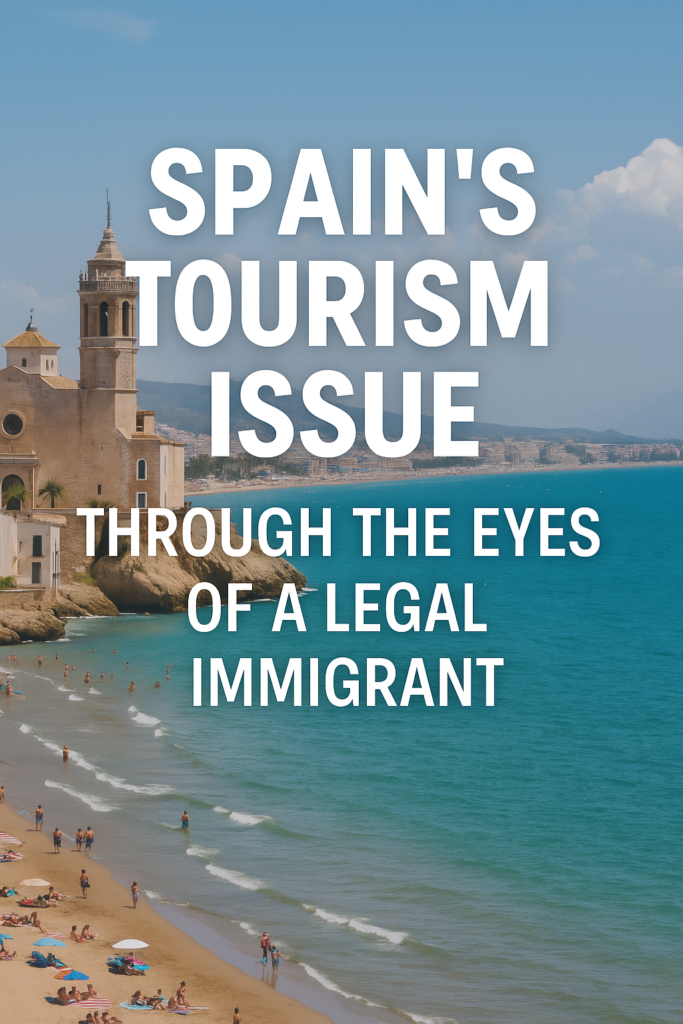
Spain is one of the most visited countries in the world and after living here legally for the past seven years, I can fully understand why. The beaches, the food, the deep history, the soul of each town. It’s something truly special. My family and I have built a life here. We’ve learned the language, immersed ourselves in the culture, and proudly call this country home. But with that love comes a sense of responsibility to speak honestly about what we see.
This summer, we vacationed in Tenerife, and while the island’s beauty is unchanged, the experience felt different. Tourists flooded the beaches and streets, and prices for accommodations had soared. We spoke with several locals during our stay some born and raised on the island and one thing was clear: While many tinerfeños (local Tenerife residents) do indeed blame the tourists. Other tinerfeños see the bigger picture and they blame their system. “It’s our own government that’s selling us out,” one local said plainly. That truth may not be easy to swallow, but it’s echoed across Spain.
As Americans from Florida, we understand what it means to live in a vacation destination. We love the beach. But even when visiting the quiet coastal areas of Andalucía, like Cádiz, we’ve noticed the rise in vacation homes and how the beaches become almost unrecognizable during the high season. And yet, many of the homes rented at inflated prices aren’t owned by foreigners; they’re owned by Spaniards. It’s an aspect that often goes unspoken yet plays a role in the bigger picture.
Greed isn’t exclusive to one group. And while it’s easy to point fingers at outsiders, the reality is that local property owners, often with multiple homes, are charging the highest prices possible and prioritizing profit over community. I don’t fault people for wanting to make a living. But when this behavior is unchecked and unregulated by the government, it creates a housing crisis and drives locals away from their own coastlines.
Spain made over €120 billion in tourism revenue in 2024. That’s enormous. So, the real question becomes: where is all that money going? Why aren’t residents seeing more direct benefits? Why aren’t local families being supported to stay in their own neighborhoods?
Let’s look at countries like the UAE. In places like Dubai, legal residents benefit directly from national wealth; some even receiving annual stipends from the state due to oil revenues. No system is perfect, but it shows what’s possible when a government decides to prioritize its people over short-term gain.
To be clear: I love this country. I’m grateful to live here. And I share these reflections not from a place of entitlement, but from care and concern. As a mother, a writer, a legal immigrant, and someone who has made Spain my home, I want to see policies that make room for both the people who live here and the visitors who come to admire it.
Tourism isn’t the enemy. But greed, poor planning, and lack of protection for residents is. That’s what’s fueling the backlash.
Rather than placing the blame on tourists, perhaps it’s time to look toward those in decision-making positions and ask the important questions about how tourism is managed.
—
With sincerity and hope,
Joy E. Glenn
Black American Expat | Author | Mother | Spain Resident Since 2017